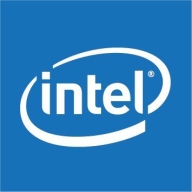

PyTorch and OpenVINO are competing products in the machine learning framework space. PyTorch has the upper hand in community support due to its widespread adoption, appealing to a broader range of developers.
Features: PyTorch features a dynamic computation graph, an extensive library of pre-built models, and robust support for research and academic use. OpenVINO focuses on optimization capabilities, especially for edge devices, supports multiple hardware accelerators, and offers streamlined integration with Intel hardware.
Ease of Deployment and Customer Service: PyTorch offers a straightforward deployment model with broad platform support and a large community for documentation and troubleshooting. OpenVINO provides a specialized deployment experience tailored for Intel architectures, with dedicated support ensuring optimal utilization of hardware capabilities.
Pricing and ROI: PyTorch has minimal initial costs due to its open-source nature, appealing for budget-conscious projects mainly driven by exploratory research. OpenVINO may require investing in Intel hardware for maximum performance, leading to higher initial costs but potential high ROI for inference-heavy applications.
| Product | Market Share (%) |
|---|---|
| PyTorch | 3.5% |
| OpenVINO | 1.7% |
| Other | 94.8% |


| Company Size | Count |
|---|---|
| Small Business | 5 |
| Midsize Enterprise | 4 |
| Large Enterprise | 4 |
OpenVINO toolkit quickly deploys applications and solutions that emulate human vision. Based on Convolutional Neural Networks (CNNs), the toolkit extends computer vision (CV) workloads across Intel hardware, maximizing performance. The OpenVINO toolkit includes the Deep Learning Deployment Toolkit (DLDT).
We've built this course as an introduction to deep learning. Deep learning is a field of machine learning utilizing massive neural networks, massive datasets, and accelerated computing on GPUs. Many of the advancements we've seen in AI recently are due to the power of deep learning. This revolution is impacting a wide range of industries already with applications such as personal voice assistants, medical imaging, automated vehicles, video game AI, and more.
In this course, we'll be covering the concepts behind deep learning and how to build deep learning models using PyTorch. We've included a lot of hands-on exercises so by the end of the course, you'll be defining and training your own state-of-the-art deep learning models.
We monitor all AI Development Platforms reviews to prevent fraudulent reviews and keep review quality high. We do not post reviews by company employees or direct competitors. We validate each review for authenticity via cross-reference with LinkedIn, and personal follow-up with the reviewer when necessary.